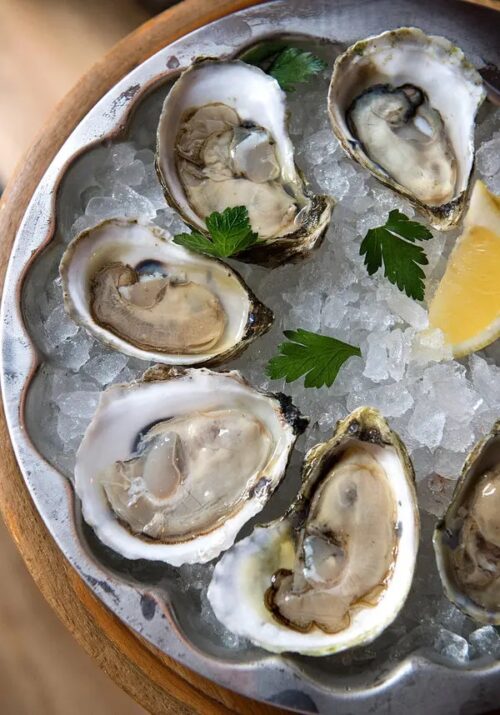
By Francesco Bianchini
In the last year of the millennium – I don’t remember the exact month, but it was one with an ‘r’ in it – my friend Luisa and I landed in Dublin. We rented a car and headed to the west coast. Because there were no superhighways in Ireland in those days, it took us more than an afternoon to cross the country, creeping along an old national road. We looked forward to the two nights we’d booked in an old country house, one nestled at the bottom of a secluded valley, with peat fireplaces warming every room, decked with curtains in heavy chintz, attracting other guests immersed in reading or engaged in barely whispered conversations. In fact, as we had seen from the photos in the brochure, the place promised much more: a facade of sober Georgian geometry covered with climbing vines, set against a steep mountain that seemed carpeted with damp and tender moss. How green it would be! And with views on each side of a lake and several streams full of trout and salmon. With thoughts of that excellent Irish salmon, we had sensibly booked for dinner.
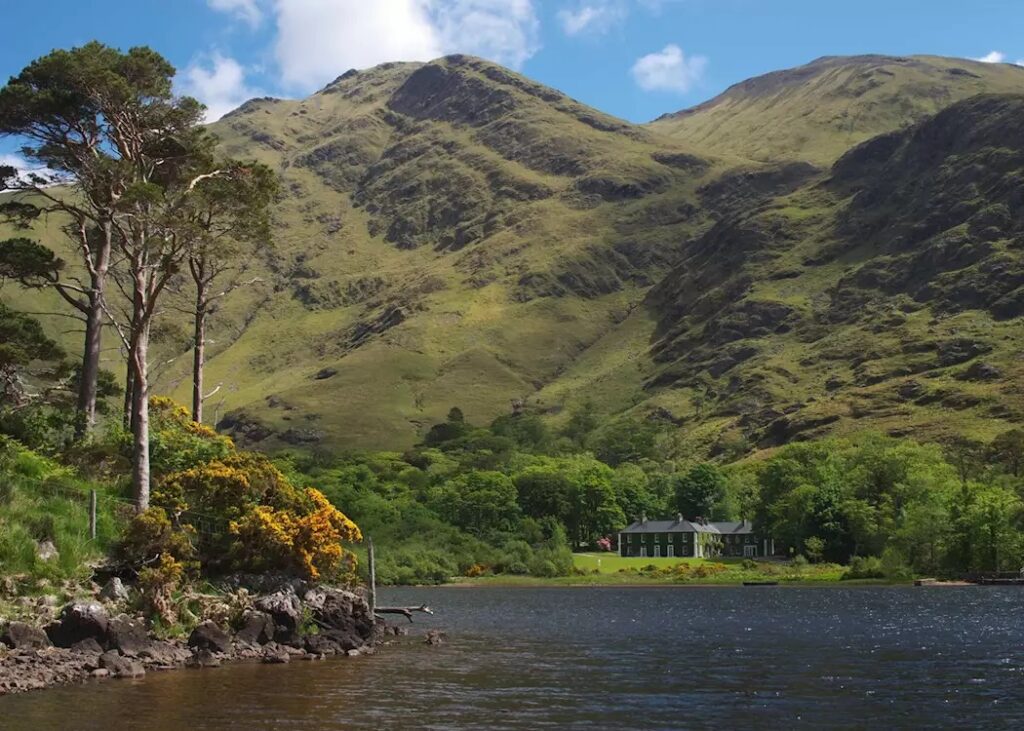
When we stopped at a roadside inn, and while Luisa was ordering a beer, I called the hotel to announce our arrival time. There was an awkward silence, then they claimed they’d never heard of me, nor of my friend. We just didn’t exist in their register. And they could not in any way remember my phone call from Italy only a few days earlier. Not a thing about how I’d insisted on a room with a view, my booking for dinner, nor of my hesitation about the type of bed. Hearing this, Luisa flew into a rage, swearing against the bigotry for which she was sure Ireland was infamous. To her the matter was clear: because we were not husband and wife, we had been boycotted. Her initial tirade had not yet died down when she recalled that, upon arrival at the airport, she’d spied a statue of the Virgin Mary guarding the rental car park; and there was even the face of a nun on the national banknotes!
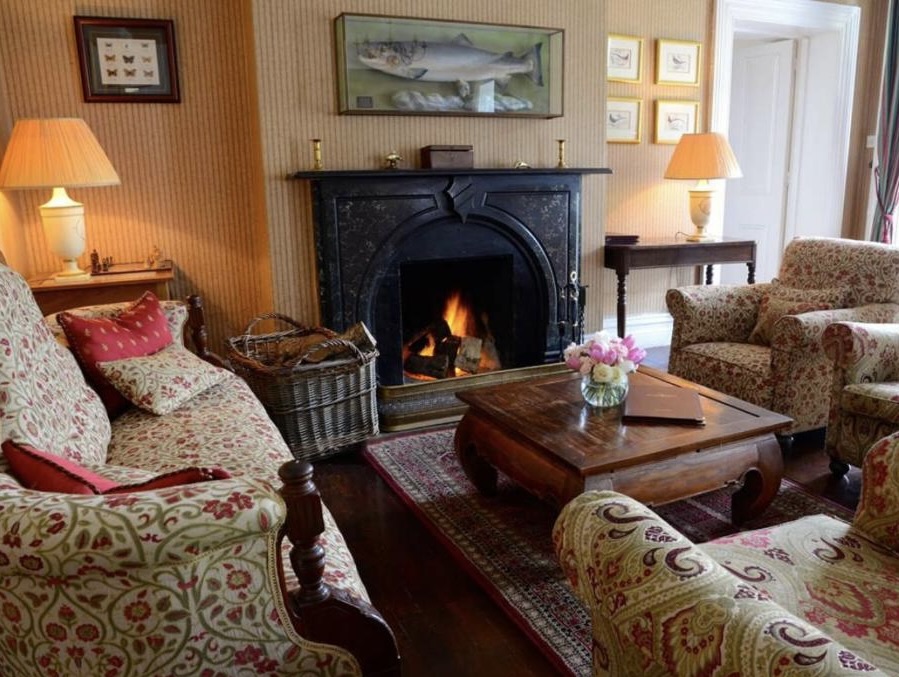
Broken dream #1
The hotel had suggested a few alternatives, but when I phoned – fighting the legendary bulimia of pub telephones in a world still regulated by long distance rates – I was told, over and again, ‘oh, so sorry, we’re full.’ At dusk we decided to head towards Galway, hoping for a better chance to find a room for the night. The city was full of seedy dives, but we finally found a hotel, one with barely respectable Victorian pretensions. But if we wanted dinner, the desk clerk advised, we must hurry. And it was well for him that we paid for the room in advance, never actually having seen it.
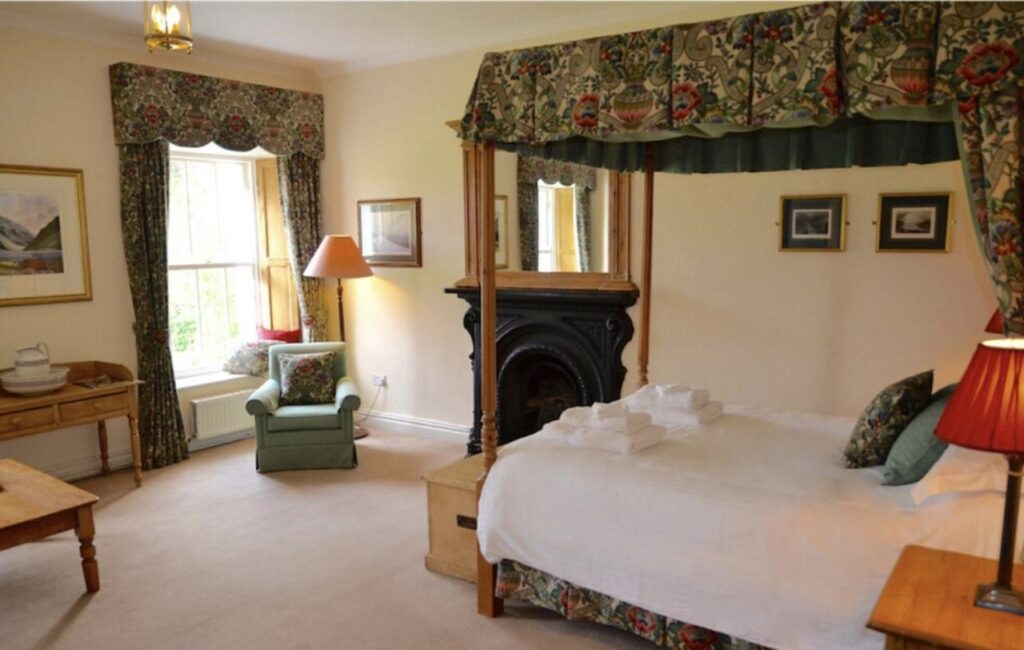
Broken dream #2
Restaurants in the whole of Galway were invariably full, or their kitchens closed. Ultimately we walked into a not-so-attractive looking place with a sign offering oyster platters. There wasn’t anything else, we were told, because their chef, too, had gone off duty. After our meagre morning meal on the airliner, the idea of satisfying a now-deep hunger with shellfish drowned in brine depressed us more than a little. But that’s all there was, so, okay then, oysters – a dozen each – which arrived in a circular tray on a bed of crushed ice. Luisa and I both love oysters, but these Irish ones were incomparable – so fresh and opulent, with no fancy touches, and just watered down with good strong Guinness ale – a combination which neither of us had tried before. Juicy, firm flesh, with their brims edged and stretched against the milky walls of their shells, these wonders slipped into our mouths once their moorings were cut; each one accompanied by a swig of that bitter and creamy viaticum. Heedless of our embarrassing and noisy slurping, we finished the first dozen and quickly ordered another – and then another. Over the years, I have chased oysters on both sides of the Atlantic, comparing their respective merits, and quenched them with white wines, champagnes, and vodka martinis. But those lovely, simple oysters of Galway Bay, with that plain simple Guinness, remains an unparalleled touchstone.
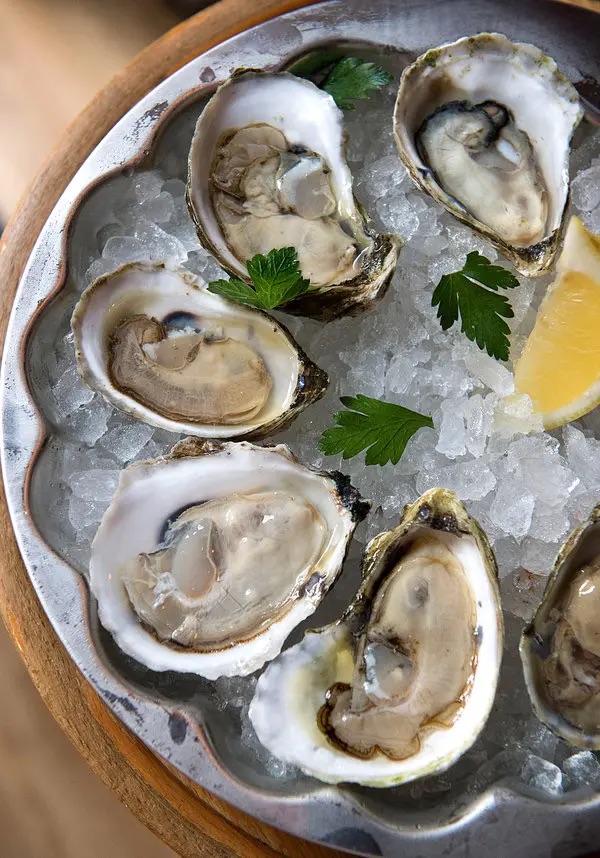
Rescued by a shoal of oysters!
We arrived back at our hotel after dinner, realizing that it occupied the corner of a very shabby block. But for some reason this made us laugh. In fact, we laughed as we climbed the rickety stairs, laughed at the threadbare carpet, and laughed again at our incredibly cramped room. We couldn’t understand how they’d managed to fit two beds in, albeit at right angles, with our feet nearly touching one another, yet our heads far apart. Most incredible of all was the bathroom: there was no way you could fit completely into it. To sit on the toilet required keeping your feet outside the door. And the tiny sink could only be used while completely out of the enclosure; to wash your face meant banging your head on the tap. Opening the lone window resulted in such a foul smell from the courtyard that it rapidly dissuaded us. The only thing to do was to plop into the narrow, uncomfortable beds and turn off the light – trying to forget the holes in the sheets.
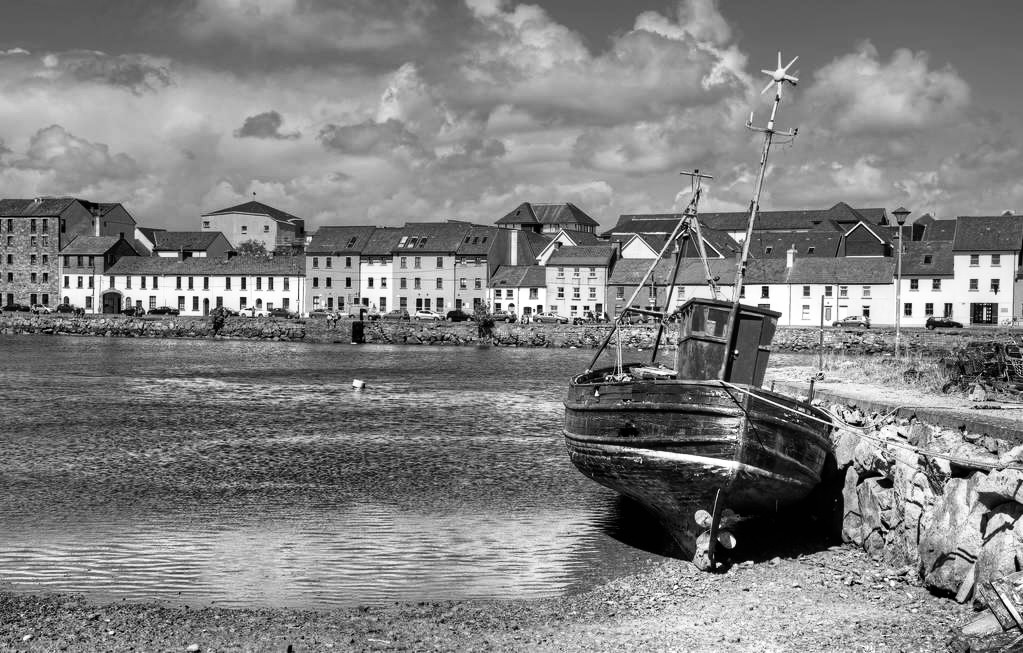
Galway and its bay
Once in darkness, Luisa began declaiming in a sleepy voice the verbiage of the leaflet describing the room we had booked, and then lost, in the bucolic country house: the view of the inlet and the rhododendron grove, the magnificent oaken canopy bed (supplied with air-dried Irish linen sheets); the cheery, warming fireplace; the books on the shelves, and the comfortable armchairs, covered in floral fabrics. Luisa pined for the old cast-iron bathtub in which she had planned to relax before dinner. As she drowsily droned on, we started laughing again. And we laughed in earnest and couldn’t stop laughing. The two silly beds jerked and swayed on the crumpled-up carpet, with our loud racket ricocheting off – and through – the thin wall partitions.



